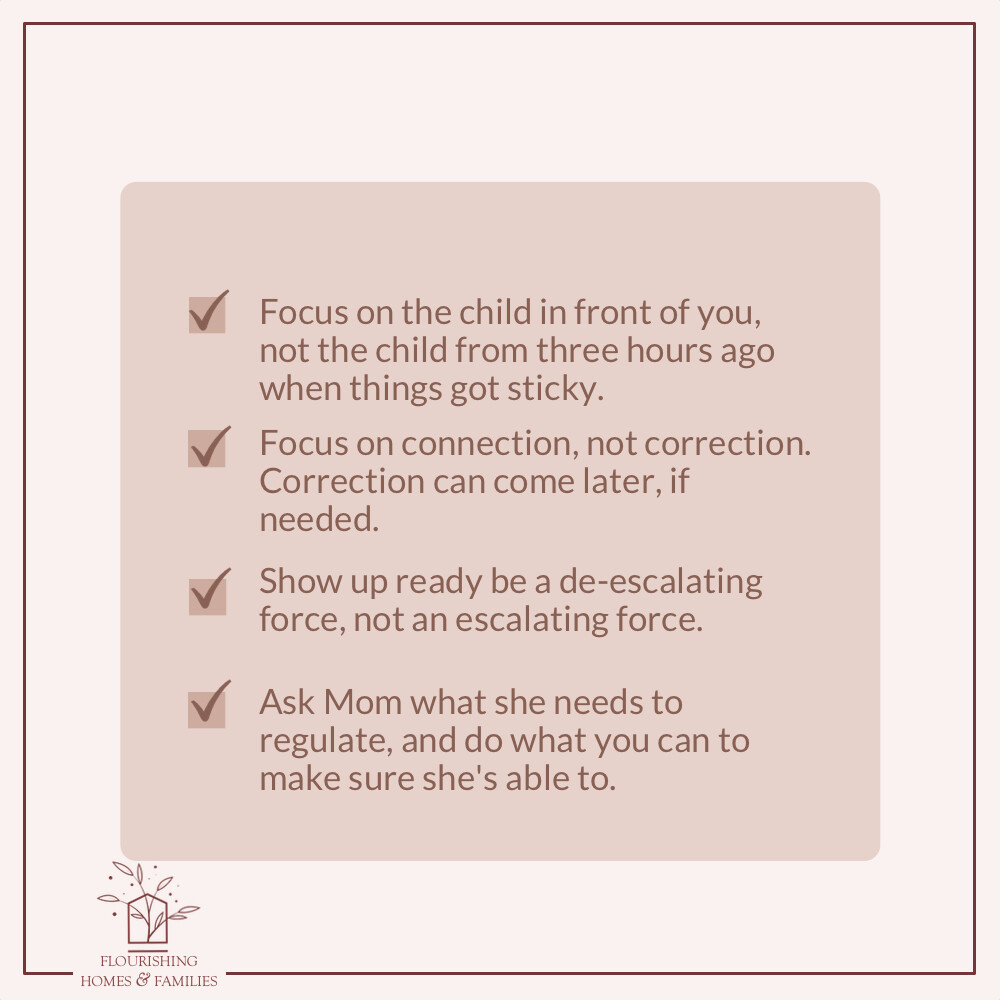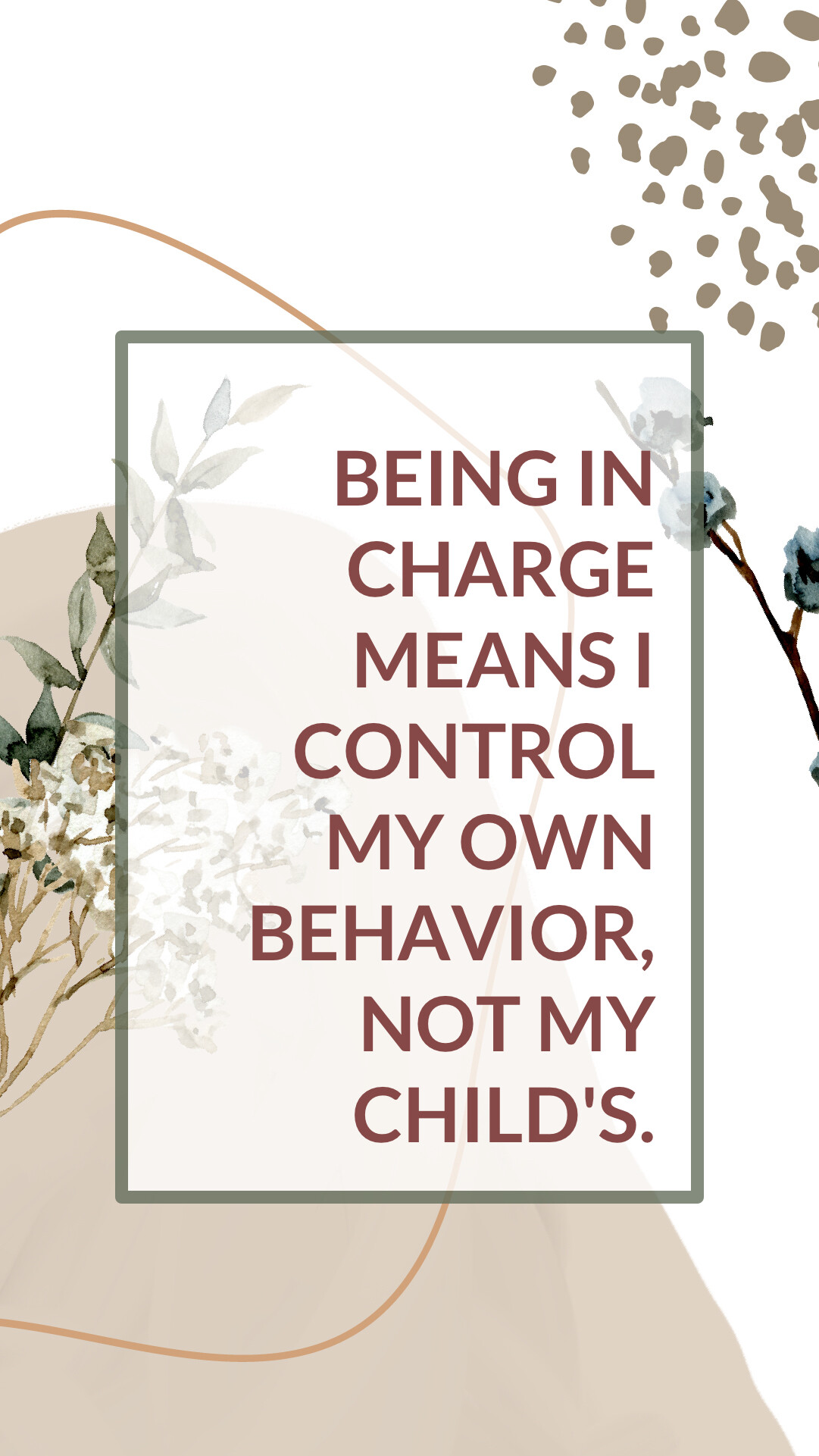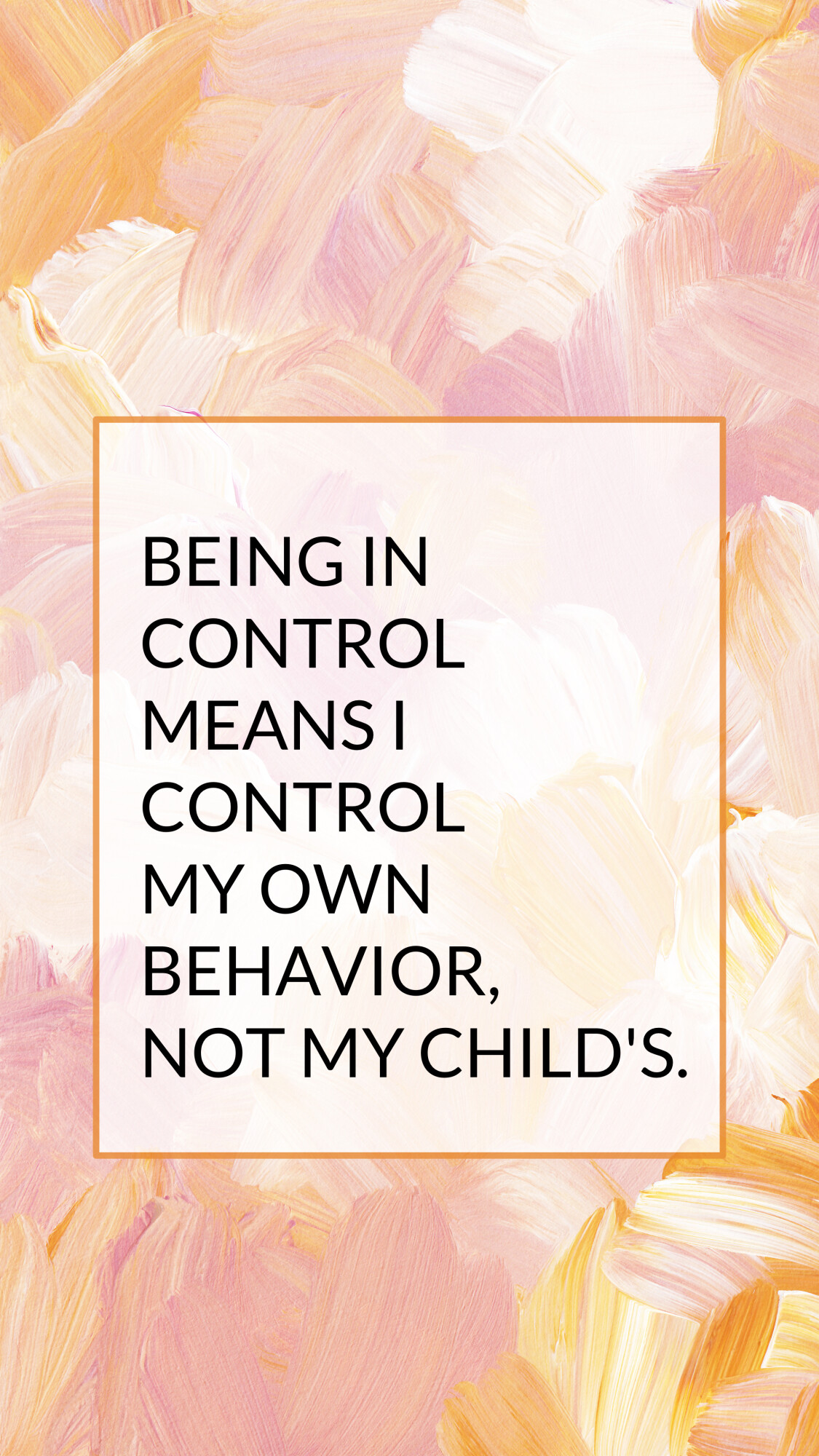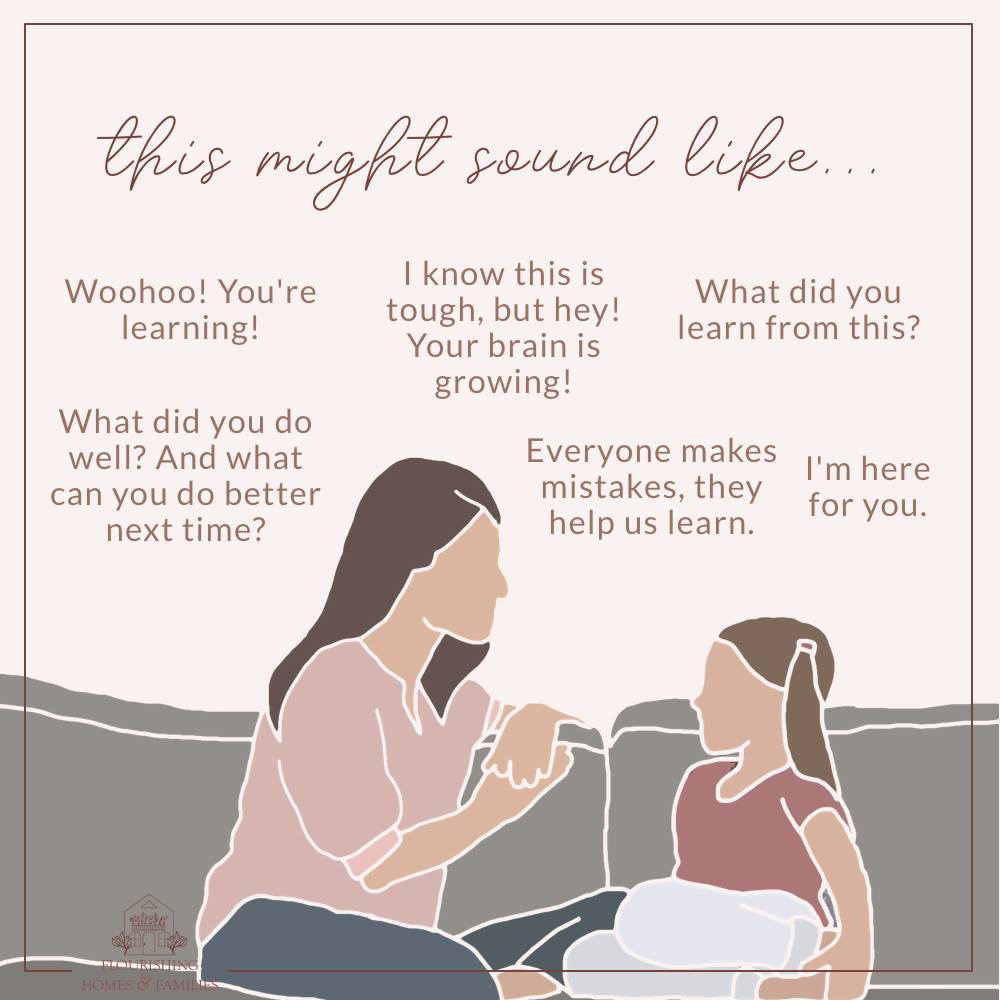
Do you want to know something that can really set me off as a dad? My children being disrespectful, disobedient, or rude to my wife. If there is one thing I have learned, it’s that my wife rarely needs me to defend her from the tiny people living with us. Mostly, she needs me to support her and help her during the stressful moments of parenting.
Let me tell you how that used to work out. So I’d be at work, working hard. Meanwhile, my wife is at home, tending to our little ones. Some days my wife loves being a work-at-home mom. This is not one of those days. My phone periodically buzzes with updates. She sounds increasingly frustrated and frazzled. She's trying hard not to take it out on the kids. I wish I could help her. Finally, my work day is done and I get to come home. By the time I get home, frankly, I'm a little bit peeved at my children. I walk in the door ready to lay down the law and defend my wife's honor.
I can't remember it ever working out particularly well. Mostly I just managed to add more chaos to an already chaotic day. Which meant I wasn't really the knight in shining armor I was hoping to be. Plus it wasn't doing my relationship with my children any favors. What kid is going to keep being excited that daddy is home when he often walks in door already frustrated with them?
So instead I changed what I do. I walk in the door and it's a clean slate. I try to spend a few minutes with each child, just re-connecting with them. My wife meanwhile, may have retreated behind a locked door to get a little alone time. Some days it's a re-set, and we have a wonderful evening together as a family. Some days it's a blip and we still have a hard day. But I've learned to father in the present, not trying to fix what's already in the past.

Looking for more? You might find these helpful:
 |  |  |

Whenever we ask, "what is your number one parenting trigger?" there is always a resounding response that whining definitely ranks pretty high up there. Why is whining so triggering, anyway? And what can you do about it? Here are a few tips + sample scripts to help you transform your whining trigger.
WHY IS WHINING SO TRIGGERING?
- You were shamed, silenced, or ignored when you whined as a child, your subconscious brain may associate whining with neglect or emotional abuse.
- You perceive whining to be a character flaw, sin, or grab for attention, or misbehavior instead of the developmentally normal communication that it is.
- You genuinely desire for your child to be happy, and when they whine you feel insufficient as a parent because they clearly are not happy.
- You feel out of control when your child whines, and that causes you to feel anxious and stressed.
THREE STEPS TO TAKE TO TRANSFORM THE WHINING TRIGGER
- UNDERSTAND THAT IT IS DEVELOPMENTALLY APPROPRIATE - Research indicates that whining, just like crying, is simply a way for young children to communicate sadness, distress, or disappointment. Whining peaks between 2 and 4 years of age, just when a child is starting to become verbal, but has not yet acquired the vocabulary to express their feelings. Beyond the age of 4 whining is still a natural response to strong emotions and children may whine when they are overwhelmed, anxious, tired, hungry, or experiencing dysregulation.
- RECOGNIZE THAT YOUR FEELINGS ARE TIED TO THE PAST, NOT THE PRESENT - Dr. Laura Markham of Aha! Parenting describes a trigger as "anything you experience in the present moment that activates a feeling from the past." When you feel triggered by whining, it is an activation of a wound or internalized belief from your childhood. You can determine the specific feelings it brings up, but common ones are feeling disrespected, unheard, unimportant, etc. What happens when a child feels unimportant or disrespected? They feel angry and defensive. Chances
are, those are the same feelings you experience when you're triggered now. - PLAN AND PRACTICE A NEW RESPONSE TO WHINING - Whatever your current reaction to
merely a program that your brain accesses automatically. You can write a new program for your brain, and with time and practice it will become your new response. The more you practice the new response, the more your brain will automatically access that new program when you hear whining. Try writing a few scripts to rehearse in the shower, the car, or as you fall asleep at night. And don't worry, your child will give you real-time practice opportunities as well!
PEACEMAKING RESPONSES TO WHINING
These responses are meant to guide you as you find the right response for your family. Sample scripts can be incredibly helpful, but remember that you and your child have a unique relationship with unique needs. If these don't fit your personality, or if your child doesn't respond well, switch it up and find what works for you!
"It sounds like you're having a tough time right now. What's up?"
It seems like you're feeling whiny and sad, is that right? Do you need to cuddle or have a good cry? I'm right here to hold you.
I can tell you really want to be heard. Your words are important to me and it is hard for me to understand you. Why don't you use your regular voice? It helps me understand you better.
It sounds like you're feeling upset or overwhelmed, is that right? I have enough calm to share with you. Let's take a break and talk about this in a bit.
Can you whisper that in my ear?
Struggling to get control of your own parenting triggers? Our Transform Your Parenting Triggers can help you understand what's going on beneath the surface, discover regulating strategies that will help you stay and return to calm, and help you create new, gracious responses to common struggles. Learn more here.

When we're triggered by our child's behavior, it is so easy for us to forget to remain present. Remaining present is important for us as parents because it allows us to fully feel, process, and learn from our parenting triggers. And it is important for our children because it reinforces connection and models healthy coping skills.
The thing is, sometimes (for me: oftentimes), we don't even recognize that we aren't fully present! When we start to become dysregulated, we may physically be with our child, but emotionally and mentally we're distant and unavilable.
SIGNS YOU'RE NOT FULLY PRESENT
- You distract yourself or dissociate (example: scrolling your phone with no purpose)
- You think "My child will always act this way."
- You worry about how this will affect your later plans.
- You avoid your child when you're triggered (longer than it takes for you to reclaim your calm).
- You count down the minutes until nap time/Dad or Mom gets home/bedtime.
These signals are just that: signals. Counting down the minutes until nap time is a signal that you're struggling to remain present. Scrolling your phone is a signal that you're having a hard time being fully present. When you notice these signals, you don't have to beat yourself up! You can recognize the struggle and be patient and compassionate with yourself as you work to come back to this moment.
HOW TO STAY PRESENT WHEN YOU'RE TRIGGERED AS A PARENT
- Put your phone away and out of reach.
- Ask, "What does my child need in this moment?"
- Ask "What do I need in this moment?"
- Connect with your child in ways that will help calm you both.
- Breathe slowly, pausing to notice how your stomach, chest, and lungs feel as you breathe in and out
MANTRAS FOR STAYING PRESENT WHEN YOU'RE TRIGGERED
- "This is not an emergency, I am safe, my child is safe."
- "Peace begins with me."
- "I have everything I need for this moment."
- "Love is patient and kind. I am patient and kind with myself and my child."
- "Our love is stronger than our struggle."
- "Holy Spirit, you are welcome here."
- "A gentle answer turns away wrath."
 |  |  |  |
 |  |  |  |
 |  |  |  |
right click (or tap and hold) any image to save as a lock screen or wallpaper on your phone
And here's why you want to do this hard work: because this moment is fleeting! While it may be hard, overwhelming, messy, and unpleasant, it's a part of YOUR story - don't miss it!
LOOKING FOR MORE HELP?
The following books helped me cultivate peace and learn to regulate my own emotions when triggered by specific behaviors:
- Triggers: Exchanging Parents' Angry Reactions for Gentle Biblical Responses
- Scream-Free Parenting: The Revolutionary Approach to Raising Your Kids by Keeping Your Cool
- Raising Good Humans: A Mindful Guide to Breaking the Cycle of Reactive Parenting and Raising Kind, Confident Kids

You've probably heard the parenting advice of "Pick your battles", right? I totally get what it means - don't sweat the small stuff, be choosy in what's really important. The intent behind this oft-cited advice is good: Be mindful of what boundaries and limits are nonnegotiable and when it's wise to model flexibility.
But can we talk about what the underlying message reveals: that your child is the enemy.
And that's just not true. Your child is a human with free will, a unique personality, their own outlook on life, and their own opinions about....well, lots of things! And they aren't your enemy, and you certainly aren't their enemy. In fact - you should be their greatest ally!
This mindset shift doesn't mean you automatically agree with whatever your child wants. But it does mean that you work on teaching your child critical thinking, problem-solving, collaboration, and what healthy conflict looks like.
WHAT THIS LOOKS LIKE:
👉🏼 Nurturing a young child through a transition rather than expecting them to suck it up because you said so.
👉🏼 Giving children choices within your boundary, which allows them to feel autonomy and age-appropriate control.
👉🏼 Using "Yes, and" instead of "no" to empathize while holding a limit with gentle firmness.
👉🏼 Problem-solving with your child to find a plan that works for both of you, which we teach in our Collaboration + Cooperation workshop.
👉🏼 Welcoming your child's questions and evaluation of your values and goals, and with older children, inviting them to identify and adopt family values with you.
Our words matter. They hold the power of life and death! And as parents, we hold the pen that writes the story of our relationship with our children. Let's shift our mindset to a collaborative, partnering, life-giving paradigm rather than holding onto an old paradigm that not only fails to serve us well, but positions us against our children.

MINDSET SHIFT: MISTAKES HELP US LEARN
First, let me say that it is completely normal to hope that our children don't make the same mistakes we did. In an ideal world, they would learn from our stories and make wise decisions. But that's just not reality, and when we use "I don't want you to make the same mistakes I did" as a foundation for how we teach and interact with our children, it robs them of the opportunity to make their own mistakes and to learn and grow from them.
How about this mindset shift: our children are going to make mistakes. Maybe a lot of them. Maybe big ones. Maybe mistake that have lasting consequences. As we teach and guide our children, let's cultivate a relationship where they feel safe to come to us with their mistakes, and where they know that making mistakes is a normal part of being human. It's how we learn and grow from them that really matters.
WHY THIS MINDSET MATTERS
FEAR-BASED VS. GRACE-BASED
When we parent from the place of "I hope my child doesn't make the same mistakes I did" we're parenting from fear, which usually leads to attempts to control our child's behavior. When we switch our mindset to knowing that our child will make mistakes, and having grace in those moments, we empower them to learn through the consequences of their choices and mistakes.
PARENT-CENTERED VS. CHILD CENTERED
When we focus on our mistakes we're centering our parenting choices on the wrong thing: us. While our children can certainly learn from our mistakes, the way we parent them should be centered on their personality, temperament, abilities, and needs, not our past regrets.
PERFECTIONISM VS. GROWTH MINDSET
You may not intend to set a standard of perfection, but our kiddos can easily interpret it that way. They hear "I don't want you to make mistakes." or "Mistakes equal regret." or "I don't know how to help you through mistakes." Perfectionism is the worst standard we can have for our children because it is completely unattainable! Rather, we should embrace mistakes as a necessary part of learning, and foster a growth mindset in our children to help them learn and grow from their mistakes.
WHAT THIS MIGHT SOUND LIKE

When we hold in tension high expectations for our children, and deep understanding and compassion for when they don't meet those expectations, we nurture a relationship of trust and connection that prepares them to handle their own mistakes with compassion and confidence.







